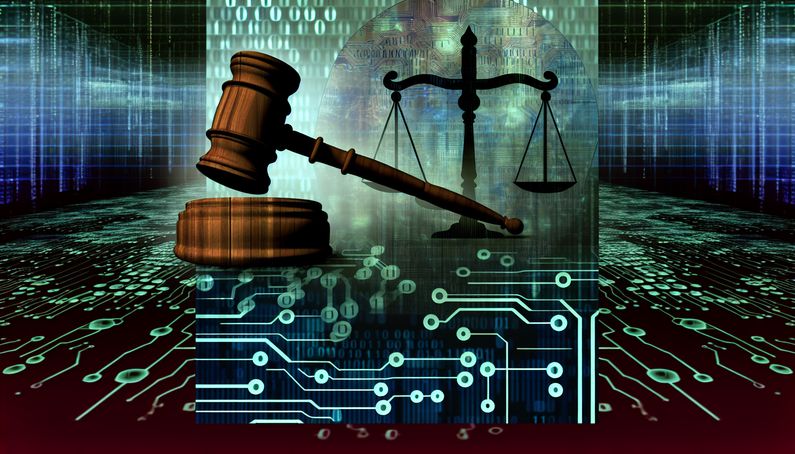
Implications of the U.S. Judiciary Cybersecurity Breach
The recent breach of the U.S. Judiciary’s electronic records service has sent shockwaves through both the legal and cybersecurity communities. This incident, reported by The Boston Times, highlights the vulnerabilities within critical national infrastructures. Sensitive documents, including sealed indictments and arrest records, may have been accessed by unauthorized parties, posing significant risks to national security. The breach’s implications extend beyond immediate security concerns, affecting legal, economic, and judicial systems. As noted by Forbes, the financial repercussions of such breaches are substantial, with the global average cost of a data breach reaching nearly $4.9 million in 2024. This breach underscores the urgent need for enhanced cybersecurity measures to protect sensitive information and maintain public trust in the judicial system.
Implications of the Breach
Impact on National Security
The breach of the U.S. Judiciary’s electronic records service poses significant risks to national security. Sensitive documents, including sealed indictments and arrest records, may have been accessed by unauthorized parties. This exposure could potentially allow criminals to evade capture or obstruct ongoing investigations, as noted by The Boston Times. The compromised data might include the identities of confidential informants, which could jeopardize their safety and the integrity of high-profile criminal cases. The breach’s unprecedented nature underscores the urgent need for enhanced cybersecurity measures to protect national security interests.
Legal and Regulatory Consequences
The breach has significant legal and regulatory implications. Organizations affected by data breaches often face litigation and regulatory fines, which can be costly. According to Forbes, the global average cost of a data breach reached nearly $4.9 million in 2024. The U.S. Securities and Exchange Commission’s (SEC) cybersecurity disclosure rule has intensified the risk of litigation, leading to increased data privacy lawsuits. The breach of the judiciary’s electronic records service could result in a surge of legal actions against the federal government, as plaintiffs seek compensation for the exposure of sensitive information.
Impact on the Judicial System
The breach has profound implications for the judicial system’s integrity and functionality. The electronic case management systems, including CM/ECF and PACER, are the backbone of federal court document management, as reported by BleepingComputer. The exposure of sealed filings and confidential documents could undermine public confidence in the judiciary’s ability to protect sensitive information. Moreover, the breach may disrupt court proceedings, as attorneys and litigants grapple with the potential compromise of their case documents. The judiciary’s response, which includes strengthening cybersecurity measures and implementing stricter access controls, is crucial to restoring trust and ensuring the continued operation of the judicial system.
Economic Impact
The economic implications of the breach extend beyond the immediate costs of litigation and regulatory fines. Data breaches can have a ripple effect on the economy, affecting businesses and consumers alike. The breach of the judiciary’s electronic records service could lead to increased costs for legal services, as attorneys and firms invest in enhanced cybersecurity measures to protect client information. Additionally, the exposure of sensitive data may result in identity theft and financial fraud, causing economic harm to individuals and businesses. The broader economic impact of data breaches is highlighted by the growing industry of data privacy litigation, as noted by Duane Morris, which has seen record growth in recent years.
Response and Mitigation Efforts
In response to the breach, the U.S. Federal Judiciary is taking steps to strengthen cybersecurity measures and protect sensitive case documents. The judiciary’s administrative arm is working closely with courts to mitigate the impact on litigants, as reported by CNN. These efforts include implementing stricter access controls and enhancing the security of the electronic case management systems. The coordinated response from the Department of Justice, federal courts, and the Administrative Office of the U.S. Courts underscores the scale of the threat and the importance of safeguarding the judiciary’s digital infrastructure. The involvement of experienced cybersecurity professionals is crucial to addressing the breach’s implications and preventing future attacks.
Emerging Technologies and Future Considerations
Emerging technologies like Artificial Intelligence (AI) and the Internet of Things (IoT) are playing an increasingly significant role in cybersecurity. While these technologies offer advanced tools for detecting and preventing breaches, they also introduce new vulnerabilities that need to be managed. The integration of AI in cybersecurity can enhance threat detection capabilities, but it also requires robust oversight to prevent misuse. Similarly, IoT devices, which are often less secure, can serve as entry points for cyberattacks. Addressing these challenges requires a balanced approach that leverages technological advancements while ensuring stringent security protocols.
Final Thoughts
The breach of the U.S. Judiciary’s electronic records service serves as a stark reminder of the vulnerabilities inherent in our digital infrastructures. As highlighted by BleepingComputer, the integrity and functionality of the judicial system are at stake, with potential disruptions to court proceedings and public confidence. The economic impact, as discussed by Duane Morris, extends beyond immediate costs, affecting businesses and consumers alike. The coordinated response from the judiciary, as reported by CNN, emphasizes the importance of safeguarding digital infrastructures. Moving forward, it is crucial to implement robust cybersecurity measures and foster collaboration between governmental agencies and cybersecurity experts to prevent future breaches and protect national security interests.
References
- The Boston Times. (2025, August 7). Major cybersecurity breach at DOJ sparks investigation into federal judiciary system compromise. https://bostontimes.org/2025/08/07/major-cybersecurity-breach-at-doj-sparks-investigation-into-federal-judiciary-system-compromise/
- Forbes. (2025, January 14). The rising tide of data privacy litigation. https://www.forbes.com/councils/forbestechcouncil/2025/01/14/the-rising-tide-of-data-privacy-litigation/
- BleepingComputer. (2025). US judiciary confirms breach of court electronic records service. https://www.bleepingcomputer.com/news/security/us-judiciary-confirms-breach-of-court-electronic-records-service/
- Duane Morris. (2025, February 11). Hot off the presses: The Duane Morris data breach class action review 2025. https://blogs.duanemorris.com/classactiondefense/2025/02/11/hot-off-the-presses-the-duane-morris-data-breach-class-action-review-2025/
- CNN. (2025, August 7). Federal judiciary says it is the victim of escalated cyberattacks. https://www.cnn.com/2025/08/07/politics/federal-judiciary-says-it-is-the-victim-of-escalated-cyberattacks



